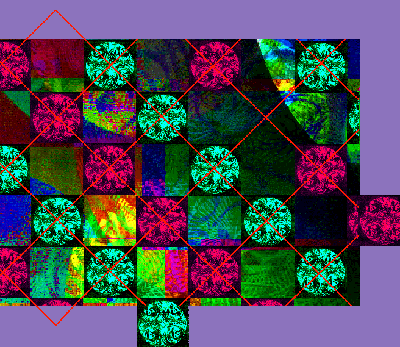 Steve Holmes,
Steve Holmes,
Engineering Group Manager,
Server Platform Development,
Director, Office Server Product Line
The engineering developments described in this issue represent
the second of many planned generations of products that will be
designed to fulfill Digital's Alpha vision. That vision is (a) to
make Alpha systems open, and (b) to deliver a rich set of Alpha
system products that lead the market both in performance and
price/performance. It is heartening to see the vision being
realized. It is yet more heartening to see it unfolding
simultaneously with appreciable improvements in Digital's
business practices. These combined events have already resulted
in substantial market acceptance of Digital's AlphaServer
products.
The particular set of papers in this issue is fortuitous in that
it demonstrates the large number of individuals and range of
engineering skills required to bring about an industry phenomenon
such as Alpha. Included are papers focused on the AlphaServer
multiprocessing systems, on the symmetric multiprocessing
implementation of the DEC OSF/1 operating system, on the
optimization of mathematical subroutine libraries for the Alpha
architecture, and on the KAP preprocessor. If one can imagine
these technical efforts multiplied many fold, the scope of the
Alpha undertaking will emerge.
The first generation of products based on the Alpha architecture
was introduced in 1992. The AlphaServer 2100 system and DEC OSF/1
SMP operating system, introduced in mid-1994, together represent
the beginning of the second-generation Alpha server products.
The overarching development goal was to give our present and
future customers a compelling reason to buy. The resultant
direction was to provide very low cost multiprocessing system
capability with industry standard open I/O buses, in this case
PCI and EISA. To capitalize on these attributes and to ensure
that a complete solution was delivered, the engineering teams
maintained a customer-focused perspective. It is this perspective
that has enabled the AlphaServer 2100 to achieve rapid market
acceptance.
Truly, though, the most significant achievement for the present
round of Alpha server products is this: a whole new standard of
price/performance for the industry has been reached. Computing
that in the past could have been performed only with very
expensive high-end machines or extensive distributed networks is
now performed by affordable AlphaServer systems.
This price/performance breakthrough augments Digital's strong
capabilities.
- A truly open environment that supports UNIX and Windows
NT operating systems on Alpha systems
- The ongoing strength of the world's best full-featured
commercial operating system, the OpenVMS system
- A world-class and world-wide service and delivery
organization
- An extensive and growing network of channels
- Overall, Digital's renewed and meaningful commitment to
be responsive to the demands and needs of the markets
This is a very exciting and productive time in Digital's history.
If this were the end of the story, there would be much of which
to be proud. In fact, there is more to come across the range of
AlphaGeneration products, including workstations, PCs,
clustering, operating systems, and networking. In the server area
specifically, the recently announced AlphaServer 2000 increases
the price/performance lead of the 2100 system. Processor and
cache upgrades have increased the absolute performance of the
family. Just around the corner are similar advances for other
members of Digital's server products. A little further away
are significant enhancements in our clustering capabilities and
in our server management tools.
All these developments are of direct and measurable benefit to
our customers. All are guided by what the markets are telling us
they want. The trend and pace of these enhancements will allow
Digital to continue to deliver on the promise of the Alpha
vision.
Performance measurements, for example, SPECmark data and
transaction-per-second tests and competitive comparisons support
the statements above. However, the case is made most convincingly
by the early acceptance and rapid rampup of AlphaServer 2100
system purchases by our customers. In the highly competitive
server arena, success is being demonstrated daily.
I would like to take this opportunity to offer a very
enthusiastic thank-you to all whose work is represented in the
accompanying technical papers, most especially to the AlphaServer
2100 development team whose work I have had the privilege to
observe since the team's formation. The hard work and dedication
of everyone is recognized, appreciated, and needed for the
future.
This foreword will conclude in favor of the substantive papers
that detail the technical contributions made by the authors and
their colleagues. It is my expectation that readers of this
issue of the Digital Technical Journal will gain useful technical
insights. It is my hope that they will also see, as I do, that
the future of Digital computing is bright.
|